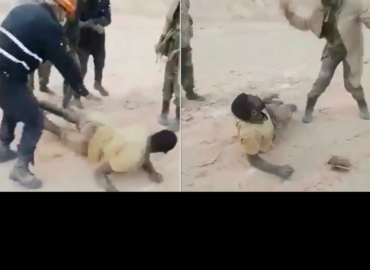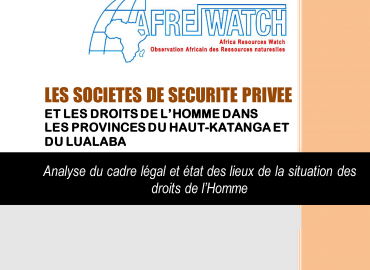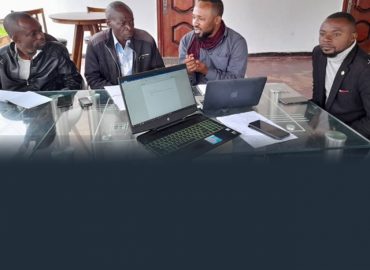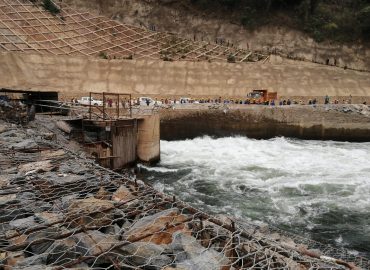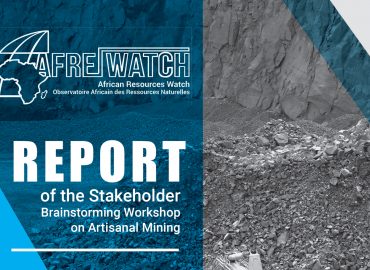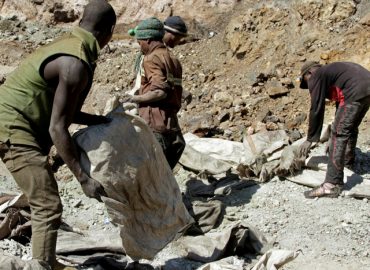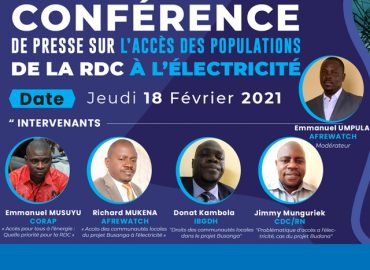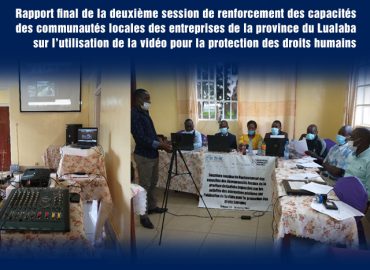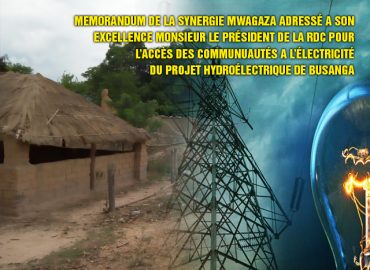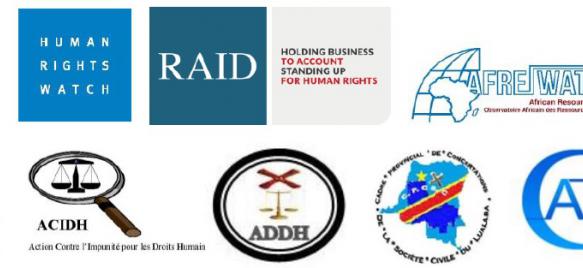12 human rights and environmental groups today raised serious concerns about Glencore’s newly published Sustainability Report, saying it lacks credibility, ahead of the company’s Annual General Meeting on 2 June.
Glencore is one of the largest natural resource companies in the world, operating at 185 sites in over 35 countries. This May, it published its 97-page Sustainability Report for 2019 detailing the economic, environmental and social impacts of the company’s activities. Sustainability reports lay out the company’s vision on human rights and environmental sustainability and offer a projection of its future performance. Such reports have emerged as a significant measure for investors and stakeholders alike to determine where a company is headed on economic, social and governance (ESG) issues.
Civil society groups said that Glencore omitted crucial human rights and environmental incidents that occurred at a number of its sites and downplayed others. Glencore’s claim in the report that it had “zero” serious human rights incidents amid local communities came in for particularly sharp criticism.
Although not described in the report, Glencore appears to apply a narrow definition of what constitutes a “serious human rights incident”, defining it in other company communications in 2019 as a “fatality that occurs as a result of some kind of an interaction with the community”. International human rights law and standards cover a much broader range of abuses, including unlawful death or injuries, sexual violence, enforced disappearance and arbitrary detention, among other clauses.
In 2019 Glencore’s Head of Sustainable Development said in an interview that the company recognised the need to refine the definition to “look at other aspects of human rights” although there is little indication in the recent report to suggest Glencore has done so.
“Glencore’s narrow definition of a serious human rights incident is not only wrong in law, but permits the company to report only a fraction of the human rights abuses that occur as part of its operations,” said Anneke Van Woudenberg, Executive Director of UK corporate watchdog, RAID. “When companies set their own definition of what is a human rights incident, it should ring alarm bells for shareholders and investors.”
Despite disclosing “zero serious human rights incident”, Glencore’s report mentions two deadly incidents that occurred at its mining site or within its wider operations, without recording them as serious human rights incidents or linking them to its operations. This includes a case in June 2019 at the Katanga Copper Company (KCC) site in the Democratic Republic of Congo, where at least 30 artisanal miners died after a mineshaft collapsed.
Another case in February 2019 occurred when a truck transporting sulphuric acid to Glencore’s Mutanda Mine in Congo crashed and spilled its contents onto two vehicles, including a local bus, killing at least 21 people. Neither of these events were recorded by Glencore as a serious human rights incident.
Glencore states that its Sustainability Report seeks to include “every incident in the period when it occurs”, yet it also omitted reports by civil society and local communities of a toxic wastewater spill at its Badila oilfield in Chad in both its 2018 Sustainability Report and its recent report, despite receiving detailed correspondence and other communications following the incident. The spill in September 2018 allegedly caused serious injuries to dozens of local residents, including children, who suffered burns and other skin lesions. Glencore provided a detailed analysis of its grievance mechanism at the Badila operation, and a breakdown of the complaints received, but left out the testimony of injured residents from its calculations.
Glencore’s report further disregarded serious concerns of human rights violations raised by local communities and workers at some of Glencore’s sites including unsustainable mining practices and working conditions. There is no mention of a class action issued in the US by parents and children from Congo accusing Glencore and other companies of producing and selling cobalt mined under hazardous conditions. This action also drew attention to forced labour imposed on young children, resulting in serious injuries and sometimes death.
Glencore also provides very little information on corruption and other governance issues that the company faces. Apart from a few brief lines in the Chairman’s introduction to the report, there is no additional information about the opening of an investigation by the UK Serious Fraud Office in December 2019 into “suspicions of bribery” nor the launch of investigations by US and Brazilian authorities into possible corruption by Glencore in the so-called “Car Wash” scandal, nor the investigation by the US Commodity Futures Trading Commission (CFTC) into possible corrupt practices.
To compound this Glencore provided no details about the effectiveness of any steps taken since Canadian regulators fined a Glencore subsidiary, Katanga Mining Ltd, in December 2018 for misstating production figures and hiding from investors the risks of doing business with Dan Gertler, a notorious Israeli businessman named as a co-conspirator in a corruption case in the US.
Glencore’s failure to provide information relating to these incidents of corruption show little commitment to transparency, the civil society groups said.
“A company’s Sustainability Report should be a genuine disclosure of its environmental, social and governance performance not a self-promoting glossy brochure,” Emmanuel Umpula, Director African Resources Watch (AFREWATCH) in Congo. “Glencore cannot simply claim it is aligned with human rights and sustainability standards; the onus is on the company to demonstrate it, which this latest Sustainability Report fails to do.”
The civil society groups concluded that Glencore’s omissions and its downplaying of serious environmental, social and governance concerns can obscure facts from investors ahead of its AGM.
The groups called on Glencore to:
● Ensure that its definition of ‘serious human rights incident’ is in line with human rights law and standards;
● Fully disclose all environmental, social and governance incidents that impact the company, as well as how its operations have impacted, or risk impacting, its stakeholders;
● Examine where it has failed to report a serious human rights incident, and to publicly report what steps it has taken to assess and provide redress for those impacted.
For further information, please contact:
For RAID, Anneke Van Woudenberg, United Kingdom, on +44(0) 77 1166 4960 or woudena@raid-uk.org; twitter: @woudena.
For Bread For All, Dr. Nina Burri, Switzerland, on +41 (0)79 210 52 05 or burri@bfa-ppp.ch.
For AFREWATCH, Emmanuel Umpula, DR Congo, on+243 818 577 577 or on emmanuelumpula@afrewatch.org.
The groups who signed this statement include:
Action Contre l’Impunité pour les Droits Humains (ACIDH) – Democratic Republic of Congo
African Resources Watch (AFREWATCH) – Democratic Republic of Congo
Association des Jeunes Tchadiens de la Zone Pétrolière (AJTZP) – Chad
Bread for All – Switzerland
Centre d’Assistance Juridico-Judiciaire (CAJJ) – Democratic Republic of Congo
Die Ask! – Switzerland
London Mining Network – United Kingdom
Public Interest Law Center (PILC) – Chad
Rights and Accountability in Development (RAID) – United Kingdom
Rights CoLab – United States
ShareAction – United Kingdom
UK Corporate Responsibility (CORE) Coalition – United Kingdom


